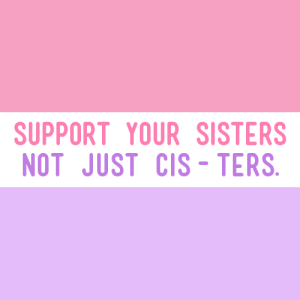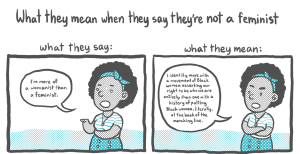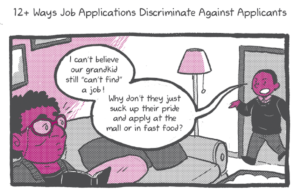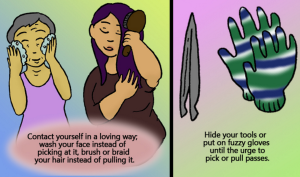Originally published on Ravishly and republished here with their permission.
Right now, today, as of writing this, I identify as queer. But I didn’t always.
And no, I’m not referring to that awkward, uncomfortable time in my life where I knew that something felt “off,” but I couldn’t quite place it, and so I paraded around in the charade of “straight.”
I mean that a few years ago, I identified as homoflexible. And before that, a lesbian. And even before that, bisexual.
Wait—what?
Yeah. My sexual attractions, behaviors, and identities have changed over the years, and it’s not because I’ve been confused and struggling to understand the “Real Me.”
It’s because I’m sexually fluid.
Let me explain.
1. What the Hell Is Sexual Fluidity?
Sexual fluidity, essentially, is the notion that, like many other things in the world, sexuality isn’t fixed. It isn’t “This is what it is, and this is what it will be, forever and ever and ever.”
It’s the idea that, hey, things change – and that we can allow them to.
2. If You Were X Then, But Z Now, Does That Mean You Were Never Really X?
My friend Sam once explained this using a shoe size analogy: Currently, I wear a size eight shoe (sometimes eight and a half – you know, depending on the shoe). There was a time in my life when I wore a size five shoe. But just because I wear a size eight now doesn’t mean I never really wore a size five. It just means that my shoe size changed.
Right now, I’m a size eight. Back then, I was a size five. Both are true, and neither negates the other. They are simply two facts about me, separated by time.
Sexuality can work the same way.
3. So You Mean It Was Like a Ph—
Stop. Stop. Please don’t. Don’t say the “P” word. It’s like every queer-person-who-once-identified-as-something-else’s biggest pet peeve.
No.
It wasn’t a “phase.”
Because when we use the word “phase,” we’re not communicating a period of time. We’re specifically communicating a period of time “in a process of change” or “forming development.” It implies that X was just some weird stop on our way to Z.
For people whose sexuality is fluid, the situation isn’t that we were confused for a while and then suddenly woke up.
It’s that (say it with me now) we once understood ourselves one way, and now we understand ourselves differently.
4. Well, You Certainly Sound Confused
My friend, you know how you’re always told not to answer a question with a question? Well, I’m going to do worse: I’m going to counter your counter with the same argument.
Because from where I’m standing, you are the one who is confused.
I’m over here rooted firmly in my understanding of my experience, and you are insistent that I’m not – just because this is a new concept to you.
I have lived with my sexually fluid self for the entirety of my existence. That’s over thirty years of experience with sexual fluidity. You just came upon this concept recently. I promise that I am less confused than you are.
And that’s not to say that being confused is inherently bad. We’re all confused sometimes. I’m still confused about String Theory, among other (and more banal) things. But what is bad is telling someone that they’re confused just because you don’t understand their experience.
5. But This Hasn’t Been My Experience, So How Can It Be Yours?
Not everyone experiences sexual fluidity. Some people have one understanding of their sexual attraction, behavior, and identity for their whole lives. Kind of like how my favorite color has always been yellow. It’s never changed. That (so far, anyway) is fixed. And that is a valid experience. Had I had 400 different favorite colors over my lifetime, that would be fluid. And that also would be a valid experience.
Sometimes our experiences are different. In fact, usually they are. That’s what makes being a person (and meeting other people) so damn cool: We can learn a lot from one another.
Hopefully, starting today.
[do_widget id=’text-101′]
Melissa A. Fabello, Co-Managing Editor of Everyday Feminism, is a body acceptance activist and sexuality scholar living in Philadelphia. She enjoys rainy days, tattoos, yin yoga, and Jurassic Park. She holds a B.S. in English Education from Boston University and an M.Ed. in Human Sexuality from Widener University. She is currently working on her PhD. She can be reached on Twitter @fyeahmfabello.
Search our 3000+ articles!
Read our articles about:
Our online racial justice training
Used by hundreds of universities, non-profits, and businesses.
Click to learn more





















